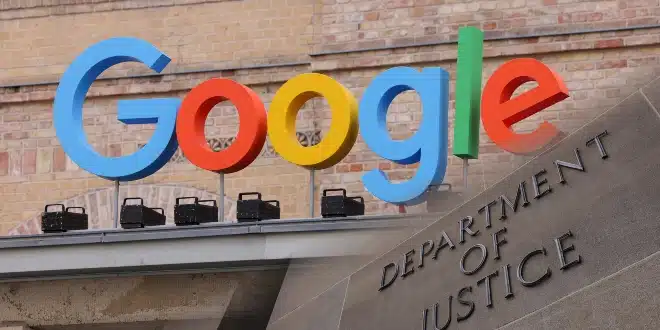Google is entering a pivotal period as regulators and courts around the world challenge its dominance across search, advertising, and mobile ecosystems. In the United States, the Department of Justice (DOJ) is seeking the breakup of Google’s advertising empire, while the company is simultaneously appealing restrictions in a landmark search case.
At the same time, a high-stakes battle with Epic Games threatens Google’s control over the Play Store. One rare reprieve came from China, which has quietly ended its own antitrust probe into the tech giant.
DOJ Pushes for Breakup of Google’s Ad Tech Stack
The most pressing threat comes from the Justice Department’s case in the Eastern District of Virginia, which focuses on Google’s hold over the open-web digital advertising market. Earlier this year, a court found Google guilty of monopolizing critical parts of the online ad ecosystem, including its Ad Exchange (AdX) and Google Ad Manager.
Prosecutors are now demanding “structural remedies,” calling for Google to divest core advertising products to restore competition in how publishers sell ads and how auctions are run. According to the DOJ, such a move could lower advertising costs by 10–20 percent, with savings potentially passed on to businesses and consumers.
Google has strongly resisted these demands, warning that breaking up its ad business would undermine innovation and efficiency in an industry already undergoing rapid transformation due to artificial intelligence. The trial is scheduled to conclude in October, with a final ruling likely before the end of 2025.
Google’s Search Monopoly Ruling Under Appeal
Alongside the ad tech trial, Google continues to fight antitrust measures in its search business. In September, a U.S. court imposed behavioural remedies, including a decade-long ban on exclusive search agreements with partners and requirements to share certain data with competitors.
While significant, the court stopped short of ordering a breakup of Google’s Android operating system or Chrome browser—moves many industry observers had expected. Critics described the ruling as “lenient” and more symbolic than structural. Google plans to appeal, which could drag proceedings out until 2027, extending uncertainty for the company and its rivals.
Supreme Court Move in Epic Games Case
Another major front is Google’s long-running clash with Epic Games over app distribution on Android. Epic has accused Google of abusing its control of the Play Store by forcing developers to use its billing system and limiting rival app stores.
On September 25, Google petitioned the U.S. Supreme Court to pause an injunction from the case, which, if enforced, would require the company to loosen restrictions on how apps are distributed on Android devices. Such a change could dramatically reshape the economics of the Play Store and weaken Google’s grip on mobile software.
Relief in China as Antitrust Probe Ends
Amid these mounting legal challenges in the West, Google received an unexpected boost from China. Regulators there have quietly ended an investigation into Google’s influence over the Android ecosystem, which it maintains through partnerships with domestic smartphone manufacturers despite withdrawing its consumer search services from mainland China in 2010.
The decision is viewed as a sign of shifting regulatory priorities in Beijing, with Chinese authorities turning their attention to other U.S. tech firms, including Nvidia. The move also aligns with broader U.S.-China trade diplomacy, offering Google a temporary reprieve from scrutiny in one of the world’s most complex markets.
What’s Next for Google?
Taken together, these cases represent one of the most serious regulatory challenges Google has faced since its founding. If the DOJ succeeds in forcing divestitures, it would mark one of the most significant antitrust breakups in modern tech history, rivaling the government’s actions against AT&T in the 1980s.
At the same time, Google’s legal appeals and petitions highlight a defensive strategy aimed at protecting its core revenue streams in search, advertising, and mobile distribution. The outcomes will not only shape Google’s business model for years to come but also redefine how regulators worldwide approach the balance of power between Big Tech and competition in the digital economy.


